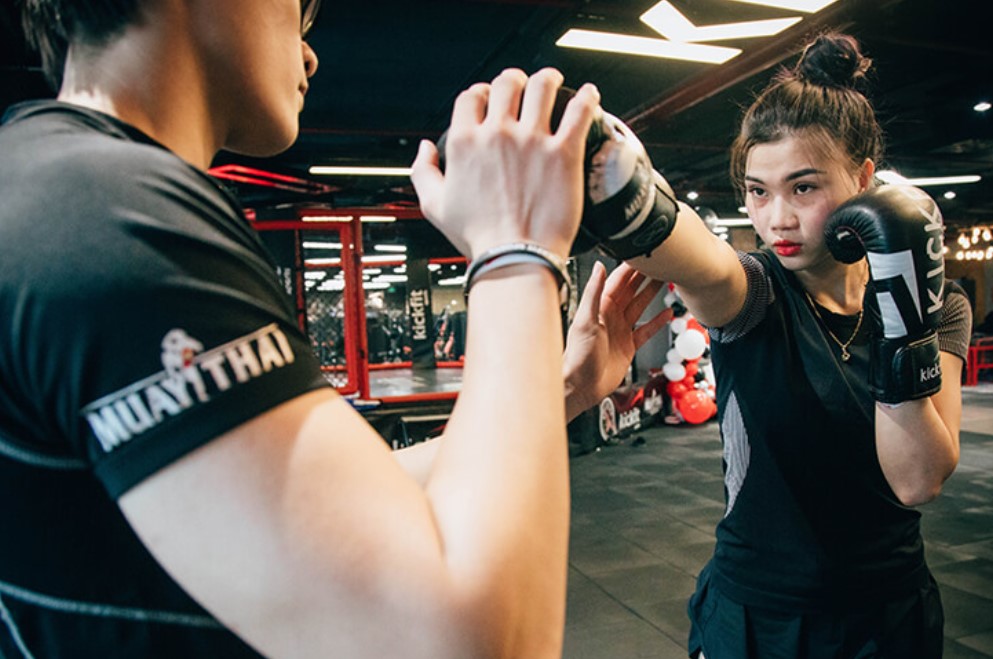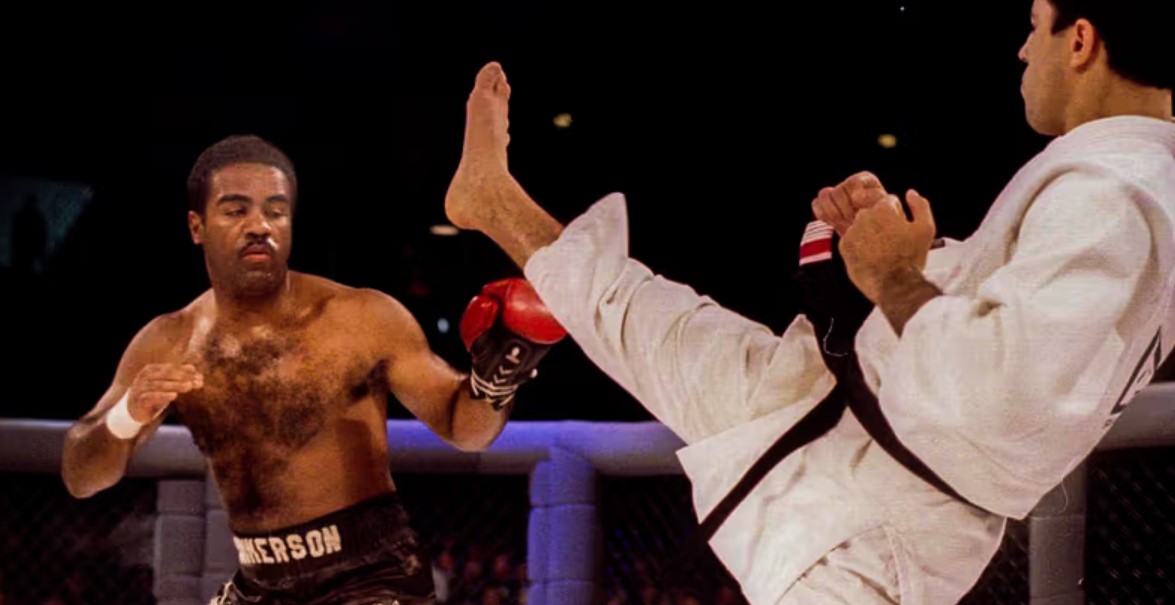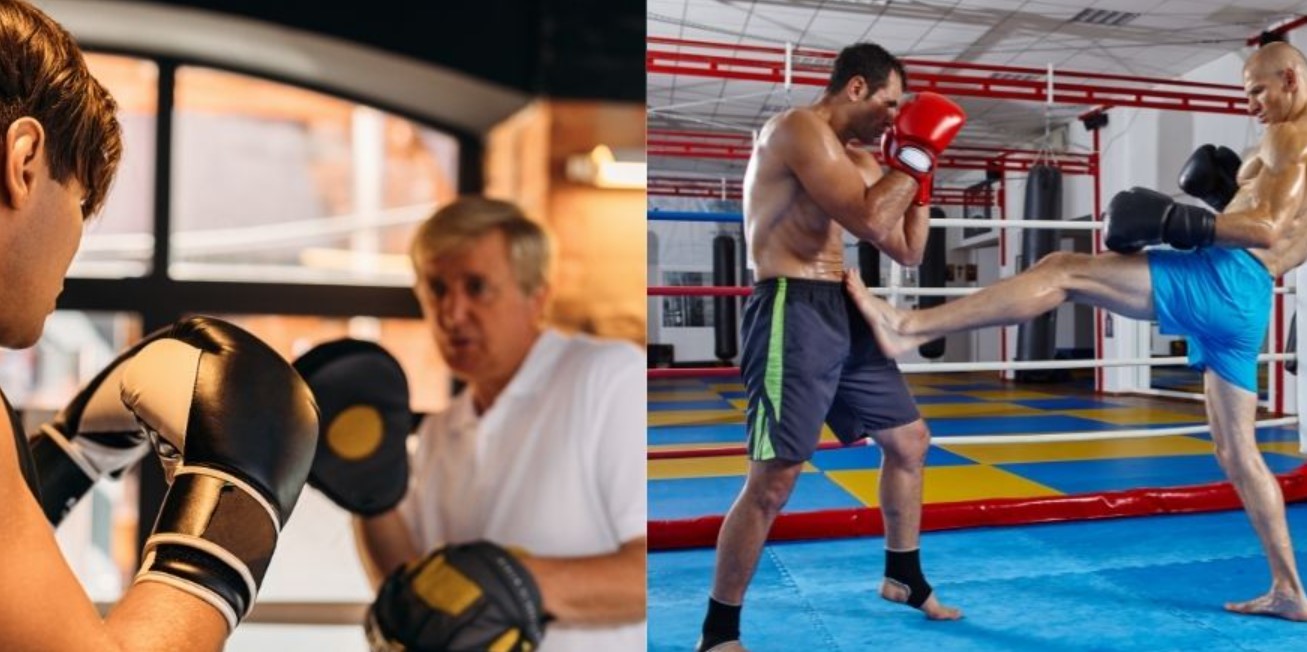Is boxing good for self defence? The perception of boxing as a ruthless combat sport tends to overshadow its practicality in self-defense scenarios. Despite not being a universal solution, boxing instills individuals with invaluable skills that can prove highly effective in real-life confrontations. Let’s examine the advantages of boxing for self-defense, recognizing its constraints and considering alternative approaches. Follow The Self Defense Tool !!
Why does boxing have a punch for self-defense?

- Superior punching technique: The foundation of boxing lies in proper punching mechanics. You’ll learn how to generate power with proper footwork, body rotation, and posture, maximizing impact while minimizing injury to yourself. This translates into the ability to stop or neutralize an attacker with attacks.
- Boxing for self defence – Improve defensive awareness: Boxing is not just about hitting; it’s about not getting hit. You’ll develop head movement, blocking, and footwork to evade punches. This means increased awareness of your surroundings and the ability to stay out of harm’s way in a self-defense situation.
- Improves fitness and confidence: Boxing is a demanding workout that improves cardiovascular health, reflexes and overall strength. This means better endurance in confrontation and the physical ability to fight back if necessary. Additionally, the confidence gained through physical training can boost your self-confidence and potentially prevent conflicts altogether.
Limitations need to be considered for this self-defense discipline
- Limited range: Boxing focuses on punches above the waist. While effective against single attackers at close range, it does not include defenses against weapons, grapples or multiple attackers, situations that may arise in real-world self-defense situations.
- Ring mentality versus street smarts: Boxing is a structured sport with rules and referees. Street fights are unpredictable and often involve weapons or unfair tactics. The skills you learn in the ring may need to be adapted for the real world.
The perfect combination between boxing and other self-defense disciplines

Boxing provides a solid foundation for self-defense, but it can be even more effective when combined with other disciplines:
- Muay Thai or Kickboxing: They combine kicks and knees, providing a more comprehensive approach to self-defense.
- Brazilian Jiu-Jitsu: Focuses on grappling and ground fighting, important in self-defense situations that end on the ground.
- Krav Maga: This self-defense system emphasizes practical techniques to disarm attackers and neutralize threats quickly.
Ultimately, choosing the best self-defense depends on your personal needs and preferences. Consider your fitness level, comfort zone, and the type of workout environment you prefer. Boxing gyms often offer a friendly and supportive atmosphere, making them a great place to start your self-defense journey.
>>> Click Top 10 Best Self-Defense Weapons For Women
How long does it take to learn boxing for self-defense?
Self defence boxing classes – The time it takes to learn boxing for self-defense depends on a number of factors, but here’s a breakdown to give you an idea:
- Basic Functions: Even a few months (3-6) of consistent training can greatly enhance your self-defense abilities. You’ll develop good jabs, footwork to maintain distance, and some defensive moves to block punches. This can be enough to deter attackers or give you the advantage in a basic confrontation.
- Confidence and proficiency: Becoming more confident and proficient in using boxing for self-defense takes more time. A year or two of regular practice allows you to hone your technique, improve your punching power and develop reflexes to react instinctively. You will also gain the stamina and physical strength needed to sustain yourself in stressful situations.
Remember: These are general timelines. Personal factors such as previous sports experience, frequency of training and quality of teaching can significantly influence your progress.
Here are some additional points to consider:
- Focus on core skills: While fancy footwork and complex combinations are impressive, make it a priority to master basic punches, blocks, and footwork on your own. guard.
- Sparring is important: Regularly participating in controlled sparring sessions will help you transition your training to a more dynamic environment, similar to a self-defense situation.
- Self-defense applications: Some boxing gyms offer classes specifically focused on self-defense applications, teaching you how to adapt boxing techniques to real-life situations.
Self-defense is more than just physical techniques. Situational awareness, de-escalation tactics, and the ability to avoid confrontation altogether are equally important. No matter what subject you choose, self-defense training will help you stay safe and make good decisions in potentially dangerous situations.
>>> Click What Does The Bible Say About Self Defence?





